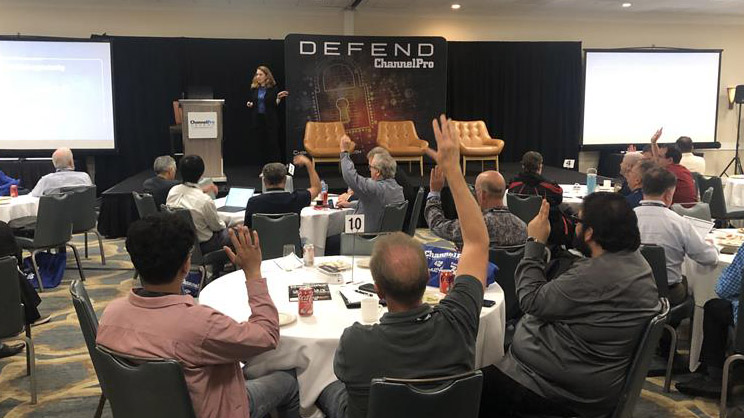MSP SUCCESS RIDES ON keeping customer environments trouble-free by proactively monitoring, securing, and updating them. The better MSPs get at doing this, the stickier—and presumably more profitable—their customer relationships become. None of that can happen without a good technical staff.
Yet some MSP owners “just can’t seem to hire anyone to do all the things only they know how to do,” says Dave Cava, a former MSP and co-owner of Encore Strategic, a coaching and recruiting consultancy. This means they get stuck working in the business instead of on it. Other owners tolerate mediocrity and unreliability because it’s hard to replace techs. “Either of these things can really hinder an MSP from growing and maturing.”
Finding and then managing technical talent in the best of times is no easy task. Now, with the acute labor shortage of the last couple of years, it’s gotten even trickier. To keep their valued technicians motivated and loyal, MSPs must strike a balance between compensation, quality of life, and career advancement opportunities.
Stay Attuned to Staff Needs
The competition for tech talent is not a new problem. “The workforce shortage has only accentuated dynamics that have been true for a long time,” notes Cava. “It was always hard to find highly qualified, skilled engineers. Now it’s almost impossible.”

Dave Cava
While overall unemployment rates have dipped below 4% in the past two years, CompTIA estimates the rate in IT is closer to 2%. As a result, techs have employment options aplenty and can often achieve higher salaries by jumping to companies desperate for talent.
“Our top performers could quit today and line up five interviews for next week. Of those five, they would likely get three offers and two would likely be at higher pay,” says Oli Thordarson, IT channel veteran and CEO of Alvaka Networks, an MSP in Irvine, Calif. “In a tight market we must be much more sensitive to the needs of the staff. A company should always be sensitive, but in a market such as the current one, a company must be acutely sensitive.”
Thordarson believes that “a simple sense of respect, listening, and teamwork within the work environment goes a long way.” To motivate technicians, he adheres to the message in Daniel Pink’s book Drive: The Surprising Truth About What Motivates Us that most people want three things:
- Mastery – to be challenged and get better
- Autonomy – to have some control in decision making
- Purpose – to contribute globally to the welfare of people while working to improve the lives of the clients
Lisa Shorr, co-owner of MSP Secure Future Tech Solutions, based in Warwick, R.I., agrees that it’s important for leaders to listen to the staff’s ideas and concerns, and show empathy with their unique needs. A trained image consultant, Shorr says that Secure Future Tech Solutions emphasizes ongoing professional development training. “I want well-rounded experts on my team,” she adds. Many MSPs emphasize their technical strengths to clients, which is important, she says, but so is training on soft skills and communication.
At the same time, employers need to balance the drive for productivity with workplace flexibility, which Shorr likens to walking a tight rope. “We maintain that balance through daily all-staff check-in meetings, consistent monitoring, and accountability on key metrics such as utilization for the service team and lead tracking for the sales and marketing team,” she says.
Hiring Practices
Good tech management practices go hand in hand with smart policies for recruitment and hiring. Not all MSPs get it right, however.

Lisa Shorr
For instance, some smaller MSPs are hesitant to hire additional staff when needs arise because they fear an economic slowdown. But Cava cautions against running technicians on overdrive indefinitely, which can drive employees out. “I try to encourage them to make decisions based on optimism, not fear. Most MSPs thrived through COVID, and chances are most will be fine even through a potential recession.”
Cava believes MSPs need a complete mind shift when hiring technical staff. “Most are used to taking what I call the mercenary approach. They wait until there is an acute need for someone with a specific skillset, and then they go out to the open market to try and hire someone with the specific experience and qualifications they are looking for.”
The more advanced the skillset you need, the harder it is to find a qualified candidate. And if you succeed in finding that perfect candidate, Cava says, you will pay top dollar. Putting more effort into nurturing and promoting people from within is a better approach, he argues. “Every growing MSP needs to make a conscious decision to become a talent factory.”
Shorr agrees. “Be open to candidates who might not have the technical skills right away. If you see that the candidate is a good cultural fit, communicates well, and has a good technical base, then be open to hiring that person,” she says.
It also pays to keep an eye on the talent pool, Shorr adds. As an MSP, you should always be hiring. “Don’t just wait until you have a need,” she says. “We need to be ready to interview and qualify any candidate [who] hits our inbox or is recommended to us.”
More than Money
Once a candidate becomes an employee, it’s not uncommon to lose them to a competitor offering a higher salary. There are lessons to be learned from this, but not everyone does.
After losing an engineer to higher pay, for example, some MSPs try to recruit a replacement at the same salary they paid the departing employee, says Thordarson. Instead of paying competitive wages, they compromise on talent, he says.
At Alvaka, to match the higher salaries of newly hired engineers, existing staff in comparable roles receive a compensation boost. “I don’t want the message sent out to everyone that the only way to get a raise at Alvaka is to go work somewhere else,” says Thordarson.
Raising salaries affects the company’s cost structure and profitability, he acknowledges, but “it is the obligation of the company to raise their rates or cut costs elsewhere. We are about to raise our rates again because of salary increases and other cost increases.”
Salary and benefits aren’t everything, though as Cava points out, “over time you don’t have a prayer of retaining them without those things.”

Oli Thordarson
Shorr believes in being flexible to keep employees happy. These days, more than 53% of employees want the flexibility to work out of the office at least part of the time, according to a Gallup poll. Recognizing this preference, Shorr’s company has agreed to change from an in-office model for its local workforce to a hybrid model to accommodate individual preferences and unique family needs, which has resulted in “great team retention.”
The Great Reminder
Still, Cava notes that most people who quit during the “Great Resignation” didn’t feel appreciated or see room for advancement. Good, thoughtful leadership can prevent those feelings of disengagement.
“Giving employees a path for advancement in your company costs you nothing,” he says. “Complimenting your staff and letting them know how valued they are costs you nothing. Providing regular feedback and brief mentoring sessions costs you nothing. Finding creative ways to provide schedule flexibility costs you nothing. All of these things engender great loyalty and help immensely with retention.”
PEDRO PEREIRA is a New Hampshire-based freelance writer who has covered the IT channel for two decades.
Image: iStock












